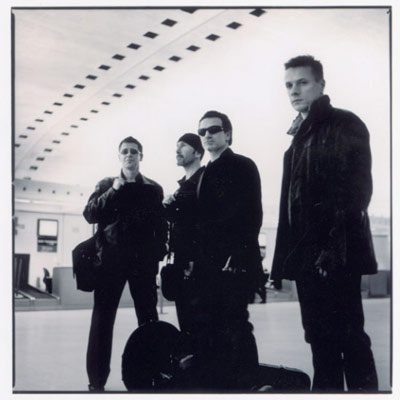Orhan Pamuk
 I don’t expect most people to recognize this name right away. Orhan Pamuk is a Turkish author & artist who won this year’s Nobel Prize in Literature for his book Istanbul, which is a memoir of his time growing up in the city. I’m part of a student committee that is exploring some questions about what direction the undergrad curriculum should take in the future, and last Friday Mr. Pamuk came to speak with us, and give us his thoughts.
I don’t expect most people to recognize this name right away. Orhan Pamuk is a Turkish author & artist who won this year’s Nobel Prize in Literature for his book Istanbul, which is a memoir of his time growing up in the city. I’m part of a student committee that is exploring some questions about what direction the undergrad curriculum should take in the future, and last Friday Mr. Pamuk came to speak with us, and give us his thoughts.I hadn’t really been very familiar with him myself prior to this, but I knew he was an award winning writer, and besides I’m always up for hearing well-known people speak. It’s one of my favorite things to do, as well as being a benefit of going to this school. (So THAT’S what my outrageously expensive tuition is going towards, these world-class speakers!) I am pleased to say that I was not at all disappointed, and have included just a few highlights from the talk he gave.
-) He talked about in Turkey there being this very strange divide between the secular rich and the religious (mainly Muslim) poor, which grew in many ways out of the Enlightenment era. Leaders in Turkey saw the technological progress of the west and wanted to follow some of that, and so tended increasingly to see religion as an artifact of the poor. However, Pamuk talked about the fact that this isn’t wholly true, since the religion is still very much wrapped up in national identity there, and so politicians will still play to that as they campaign.
-) He also said that the east/west view of the city is really more of a pre-fabricated idea than a reality. Sometimes, both within and outside of Turkey, there is this view of the city as a place where the east and west meet (culturally), but he said many of the sensibilities expressed on both those sides have been present in the country for a long time.
-) He also expressed a number of thoughts about writing and as a writer that I appreciated deeply (being a writer myself). He spoke about this idea of the “morality of the writer”, which is something I’ve often thought of myself. He himself said that he wrote this memoir primarily as a work of art, not as a guidebook to the city. Now, he was smart enough to know that many people would see it that way, and so he said basically, you decide how you’re going to write it, and then be true to that, even as you’re aware other people will read it a bit differently.
And he talked about “all fiction being autobiographical”, and that “the core of your writing is always based on the core of your own experiences”. Both of these things are what I have experienced in my own writing, and what I feel makes my writing the best. So it was extremely heartening to hear some of these thoughts that I’ve had echoed by a professional writer who’d just won the Nobel Prize. I appreciated his time and his thoughts deeply.


1 Comments:
Wow! How great that you got to hear him speak. I'm really hoping to meet him at the Nobel this year, and go to his talk in Uppsala a few days after. Hope all is well David.
-Mike
Post a Comment
<< Home